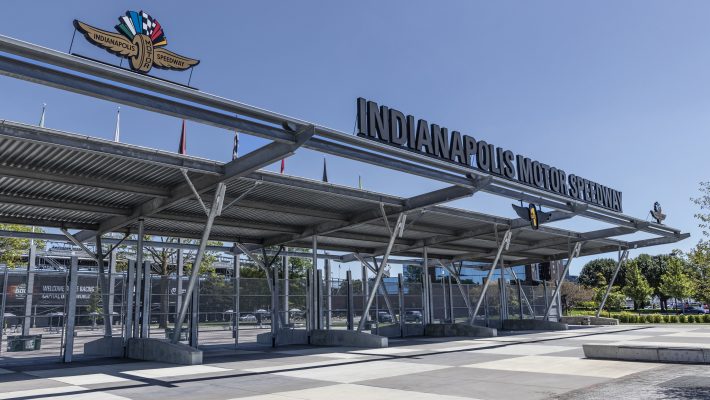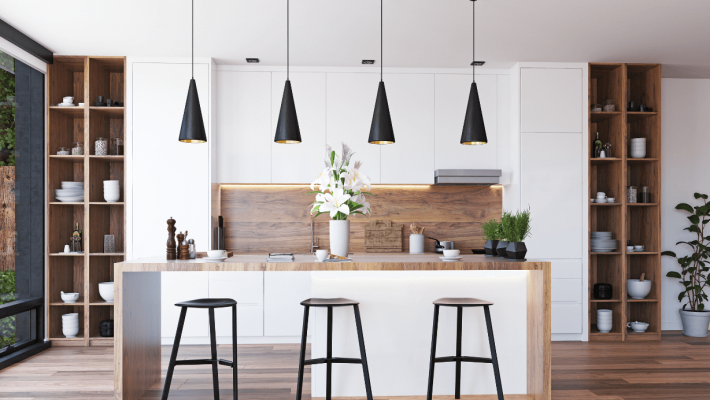The housing market is already painfully tight with bidding wars breaking out all over. Now, inflation (and interest rates, right along with it) are on the rise. Just looking at the prices on property listings online has you feeling the strain on your home-buying budget.
Given that the Federal Reserve typically hikes mortgage interest rates in order to slow inflation down and the fact that you may have to compensate by settling for less house than you initially wanted, is this really a good time to buy a home?
It could be. In fact, it could be far better to buy today than to wait. Here are all the things you need to know before you decide if homeownership is really in the cards for you:
Why You Shouldn’t Let Inflation Worries Keep You From Buying
First, you need to keep in mind that sage advice about how “the best time to buy a house is always five years ago,” because housing prices tend to keep increasing over time. There are no major indications that we’re in a real estate “bubble” that will simply collapse in the near future and lower the prices dramatically, either. The issues that gave rise to the real estate bust of 2008 simply aren’t in the picture today.
Second, real estate is typically seen as a good way to hedge against rising inflation. If you continue renting, your rent isn’t going to go down because inflation is rising. In fact, your rent is likely to increase. If you lock in a reasonable interest rate now on a fixed-rate mortgage, you have the security of knowing that your monthly payment will remain predictable while other costs are soaring.
Finally, putting your money into a mortgage helps you build wealth in three different ways:
- You start building equity: When you rent, every dollar you pay goes into your landlord’s pocket, not yours. With a mortgage, you’re putting money back into your pocket each month in the form of equity in your home.
- You raise your net worth: Despite occasional dips in the market, a well-maintained home is only likely to rise in value over time. As its value rises, so does your net worth. That gives you far more room to access funds for other needs in the future, like your child’s education or renovations.
- You gain a significant tax break: The interest on your mortgage and your property taxes are both significant tax breaks. That can help you keep more of your money to pour into everything from your emergency fund to vacations.
It’s also important to remember that mortgage rates still are fairly low (and have slipped lower in the last week), with an average 30-year fixed-rate loan coming in at just 5.24%. That’s still plenty low enough to make mortgages attractive to most buyers – and plenty low enough to make a mortgage preferable to a rental payment.
Waiting to buy, however, means gambling that inflation will fall, and there’s no sign that will happen any time soon.
What Else You Need to Consider About Home Ownership and Inflation
When inflation is soaring, you need to remember one critical thing about owning a home: Everything you want to do in the way of renovations and everything you need to do in the way of repairs are going to cost more.
Supply chain issues and rising fuel costs have already driven up prices on all kinds of building materials, so you need to keep that in mind when you’re viewing homes for sale. A fixer-upper may not be a big deal if you’re handy, but the cost of your supplies could be outrageous right now. For that reason, you may want to steer clear of homes that look like they need major updates.
When you are thinking about renovations, you want to make every dollar count. Put your money into the repairs and upgrades that are most economically sound and meaningful. That may mean prioritizing a new roof over stainless steel appliances for the kitchen or adding a home office instead of an extra half-bath on the main floor.
Finally, you also need to keep your overall budget in mind. Inflation is bound to lead to increases in things like:
- Moving costs
- Repair fees
- Utilities
- Grocery bills
- Homeowners association dues
- Insurance costs
One of the wisest things you can do when you’re looking ahead to the cost of homeownership is to make sure that you have enough money set aside – after you make your downpayment on a home and pay for any essentials – to cover anywhere from six to 12 months’ worth of expenses.




